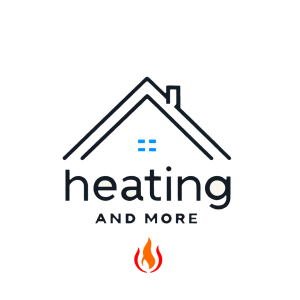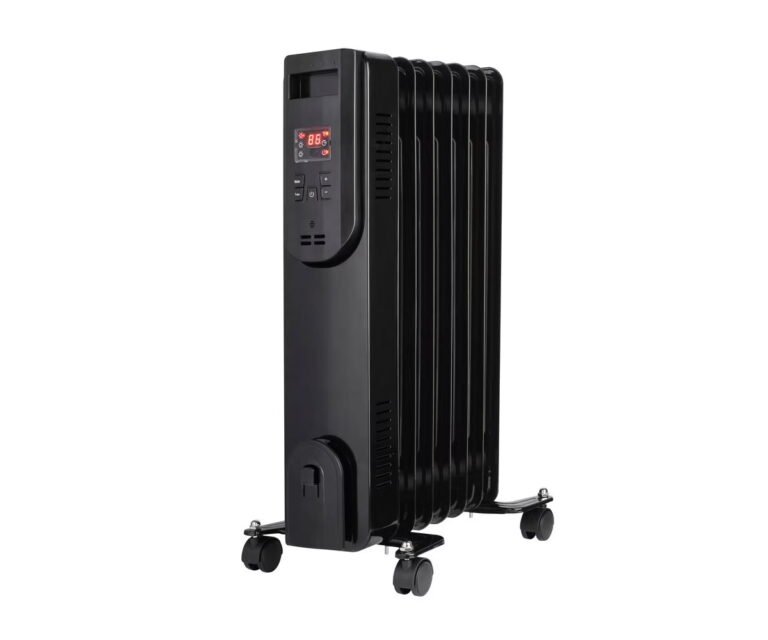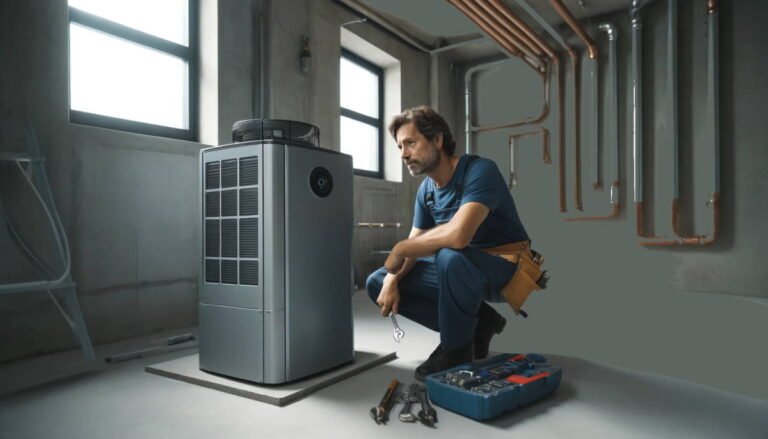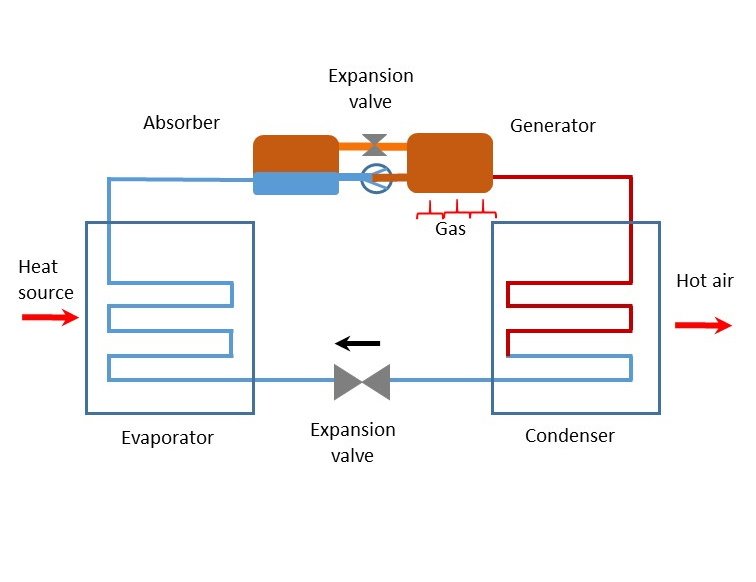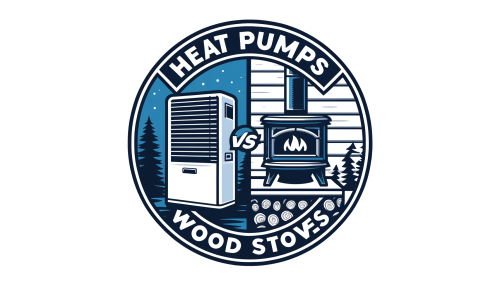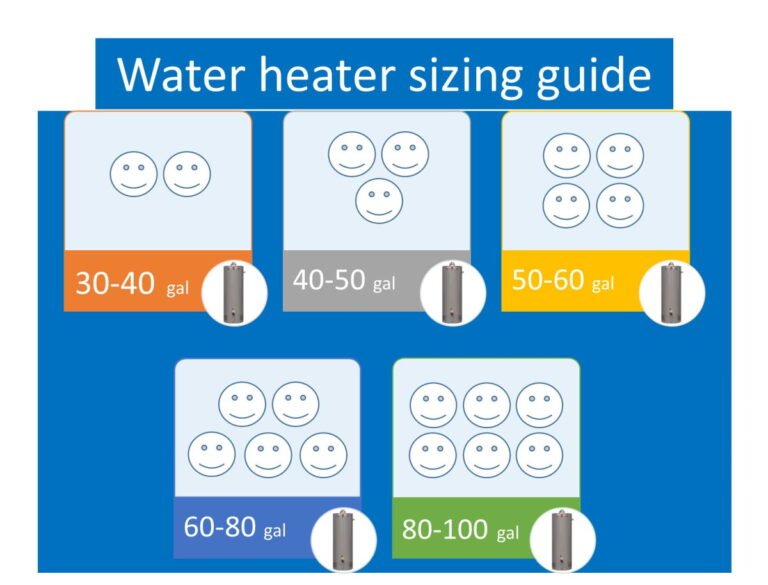How to Choose The Best Air Filter for Your HVAC
Check out these tips on how to choose the best air filter for your HVAC system, when, and why you should replace it.
Navigating the world of air filters can be confusing, with terms like MERV and HEPA often thrown around. Understanding the benefits of a high-quality filter and the potential issues of poor maintenance can make a significant difference in your home’s air quality.
Let’s talk about the essentials to help you make an informed decision.

Does Your Home Need a New HVAC Air Filter?
Air filters are essential parts of HVAC units. Filters are designed to help homes and businesses improve air quality and keep all the components functional and efficient. So, if your heat pump or a furnace is failing and you’re sneezing more often, you may want to check the filters.
Remember, filters have a short life cycle and can become clogged quickly. Regular inspection and timely replacement are key to maintaining a healthy and efficient HVAC system, ensuring better indoor air quality and system performance.
Importance of Installing a High Quality Filter
A good quality air filter in an HVAC system is essential for several reasons, impacting both health and system efficiency. Here’s a detailed look at why high-quality air filters are so important for your home:
Indoor Air Quality
Air filters are a home’s first line of defense against pollutants. Depending on the type of filter the heat pump or furnace has, it can remove contaminants like dust, pet fur, and mold spores. Good air filtration keeps your air clean and fresh, helping to prevent illness, especially for those with asthma or airborne allergies.
Prolonged System Lifespan
By keeping the internal components of your HVAC system clean, a high-quality air filter can extend the lifespan of the system.
A clogged or unfit filter will lessen your heat pump’s airflow and overwork the unit. The evaporator coils, ducts, and the motor will be most affected by the restricted airflow. Here’s a brief rundown on how these parts will get affected:
- Evaporator Coils and Compressor: If air filters aren’t working properly, heat and air won’t move efficiently through the coils. This can cause the coils to freeze up and eventually fail.
- Ducts: Dust, debris, and mold in the ducts indicate that other components are affected, especially airflow. These pollutants can also pose health risks.
- Air Handler/Motor: A dirty or inefficient filter forces the motor to work harder to pull in air. Low airflow can overburden the motor, causing it to overheat and fail.
Maintaining Optimal Performance
Regularly replacing or cleaning your air filter ensures your HVAC system runs at its optimal performance. If the filter is not properly maintained, the system becomes less effective at heating or cooling your space. This can lead to uneven temperatures and discomfort.
Energy Efficiency
Dirty filters overwork heat pumps, causing them to consume more energy. HVAC units usually consume 3000 to 5000 watts of energy, and an overworked unit may use even more. A good quality, clean air filter maintains proper airflow, allowing a heat pump’s parts to function efficiently and last longer.
Cost Savings
While high-quality air filters might be more expensive initially, they save money in the long run. Efficient filters reduce the need for frequent maintenance and repairs, and by improving system efficiency, they lower energy costs. Additionally, they help avoid potential health costs related to poor indoor air quality.
Environmental Impact
Efficient HVAC systems consume less energy, which is beneficial for the environment. High-quality air filters contribute to this efficiency, reducing the carbon footprint of your heating and cooling operations.
Choosing The Best Air Filter: Things to Consider
Choosing the right air filter for your HVAC system involves considering several factors to ensure optimal performance and indoor air quality. Here are some key considerations:
- Family Members with Respiratory Problems. If anyone in your home has asthma or allergies, opt for a filter with a higher MERV rating (Minimum Efficiency Reporting Value) that can capture smaller particles like pollen, dust mites, and mold spores.
- Ages of Family Members. Consider the ages of people in your household. Homes with young children or elderly individuals may benefit from higher quality air filters to protect vulnerable respiratory systems.
- Pollutants to Filter. Identify the specific pollutants you need to filter out. Common pollutants include dust, mold spores, pollen, pet dander, and bacteria. Choose a filter that effectively captures the particles prevalent in your environment.
- Outside Ventilation. Take into account the level of outdoor air that enters your home. If your home has a lot of outside ventilation, you may need a more robust filter to handle the increased volume of particles.
- Pets and Smokers. If you have pets or smokers in your home, select a filter that can handle pet hair, dander, and smoke particles, which are typically smaller and more challenging to capture.
- Energy Efficiency. Consider the energy efficiency of the filter. High-efficiency filters can sometimes restrict airflow, causing your HVAC system to work harder and use more energy. Look for a balance between filtration efficiency and airflow.
- Maintenance Simplicity. Think about how easy it is to maintain the filter. Some filters are washable and reusable, while others need to be replaced regularly. Choose a filter that fits your maintenance preferences and schedule.
- Filter Size. Ensure you choose the correct filter size for your HVAC system. Filters come in various thicknesses, such as 1-inch or 4-inch. Thicker filters typically last longer and capture more particles but must fit your system’s specifications.
Considering these factors helps you select the right filter based on your specific needs. Some filters are designed to capture only specific types of pollutants, and not everyone requires extensive filtration. By evaluating your household’s requirements and environment, you can choose a filter that provides the best balance of air quality and system efficiency.
How to Evaluate an Air Filter
To evaluate an air filter’s effectiveness, use the Minimum Efficiency Reporting Value (MERV) rating. The MERV scale ranges from 1 to 16 for standard air filters, with 1 being the lowest and 16 being the highest. When choosing filters, we recommend selecting a filter with a MERV rating between 8 and 12. The MERV rating is usually indicated on the packaging.
If you purchase a cheaper filter, it will generally have a lower MERV rating and remove only a smaller fraction of contaminants.
It’s also important to consider the static pressure drop across the filter. If the filter restricts airflow too much, your HVAC unit will have to work harder, becoming less efficient. This can shorten the unit’s lifespan and increase operating costs.
Note: MERV was developed by ASHRAE (American Society of Heating, Refrigerating, and Air-Conditioning Engineers) to report the effectiveness of air filters.
Here are some options to help you decide which filter type to use:
- MERV 1-4: Basic filters that capture larger particles like dust and lint.
- MERV 5-8: Medium filters that capture mold spores, dust mites, and pet dander.
- MERV 9-12: High-quality filters that capture fine particles like auto emissions and some bacteria.
- MERV 13-16: Superior filters that capture very fine particles, including smoke, all bacteria, and virus carriers.
Types of Air Filters
Fiberglass Mesh Filters
These MERV 4 filters are cheap but not recommended because they don’t improve air quality. You can still use this kind of filter if there are only dust, lint, small bugs you’re filtering, or pollutants with the size ranging from 3 to 10 microns.
Pleated/Polyester Filters
Pleated/Polyester filters are medium-quality filters that can capture more particles than fiberglass filters, usually around MERV 5 to 8. Such filters can capture up to 90% of the pollutants sizing from 3 to 10 microns. Their disposability makes for easy maintenance because they can be replaced every one to three months.
Electrostatic Filters
Electrostatic filters clean the air by using static electricity (cotton or paper fiberglass). Electrostatic filters have disposable and permanent versions. Permanent electrostatic filters can last up to eight years and can be maintained by washing and air-drying them. These filters are a good pick for standard heat pumps with a MERV rating of 9 to 12. These filters are recommended for homes with pets and smokers.
High-Efficiency Filters
High-efficiency filters are the best for your home. They are the most effective types because they can capture up to 95% of pollutants with the size down to 0.3 microns, including pollen and mold.
HEPA (High Energy Particulate Air) Filters
These are hospital-grade filters with MERV 17 to 20. They provide the best filtration system; however, they require special installation.
UV Filters
These high efficient filters are also designed with UV lights to kill the germs.Apart from choosing the right filter, you also need to know how to maintain it.
The Importance of Choosing the Correct Air Filter Size
Air filters come in many sizes where the typical depth or thickness is between 1 and 6 inches. There are no standard filter sizes because it varies from one heating system to another.
It is important to get a properly sized air filter and avoid air seepage, low performance, stress on the system, and higher energy bills.
So, if your furnace is using a filter with a dimension of 16” x 25” x 1” (width x length x depth), get the same size. The size is usually written on the filter. If you have to measure it, take the actual size and round it up to the nearest whole number (if the actual size is 15.5” x 24.5”, round to 16” x 25”). When installing it, match the arrow marked on the filter with the airflow, going from the duct toward the furnace.
Air Filter Maintenance
Different filters have different ways of maintenance. Some can be disposed of while some only need to be cleaned. It is recommended to check the manufacturer’s guidelines for specific maintenance instructions. In some cases, it might be necessary to replace the entire filter rather than cleaning it.
How Often to Replace an Air Filter
When to change a filter depends on the filter type. Fiberglass filters should be replaced every 30 days, while pleated ones can last up to 3 months. Electrostatic filters, on the other hand, only need regular maintenance and can last for years before needing replacement.
Regardless, make sure to check air filters every 3 months to see if they need cleaning or replacing.
If someone in your family has asthma or you have pets, you need to check more frequently. Checking every six weeks is sufficient. It might also be time to change the filter if your heat pump does not meet your desired temperature or if the air quality has dropped.
How to Change a Filter
Procedures for changing your air filter vary slightly depending on where your filters are. But they boil down to the following steps:
Find and open the filter cabinet. Don’t forget to turn off your system before doing so. Filter cabinets are usually in the basement. Be careful when sliding it off.
Clean or replace your filter. Replace the filter if it can’t be cleaned or used anymore. Otherwise, you can wash down the filter or clean it according to the manufacturer’s recommendations. For electrostatic filters, for example, it needs to be washed and air-dried before re-inserting. Don’t forget to measure the air filter if you’re getting a new one.
Re-insert the air filter and turn your unit on. Make sure the filter is snug in its place. If it moves, you need to replace it with the right dimensions.
Conclusion
Choosing the best air filter for your HVAC system is crucial for maintaining good indoor air quality and ensuring your system runs efficiently. Regular replacement or maintenance of the air filter, as recommended by the manufacturer, is essential to keep your HVAC system functioning optimally.
Depending on your specific needs and preferences, you can select from various types of filters, each offering different levels of filtration and ease of maintenance. Purchasing filters in bulk online can also provide significant savings.
Remember, the right air filter can make a significant difference in the comfort and health of your home.
More About Heat Pumps
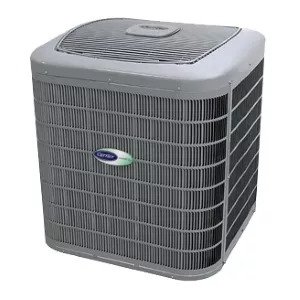
Heat Pump Not Cooling? Here’s What You Need to Know
Heat pumps are essential not only in the winter for heating our homes but also in the summer to cool…
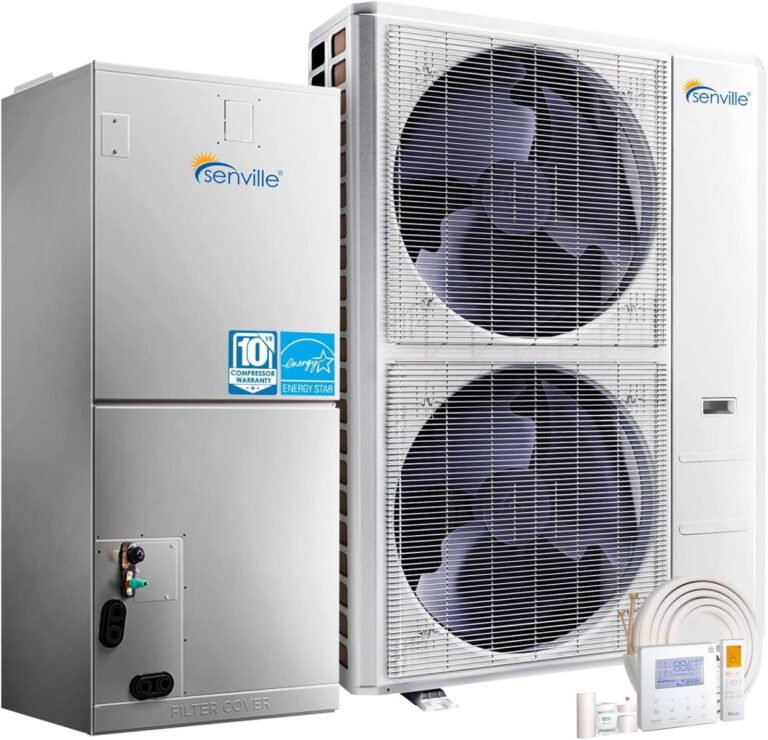
Compare Ductless Mini-Split Heat Pumps vs. Window Heat Pumps: Which Is Right for You?
In this article, we are going to look at ductless mini-split heat pumps vs. window heat pumps, examine how each…
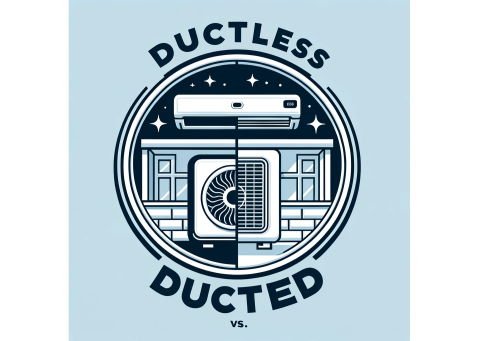
Explore the Differences: How Ductless vs. Ducted Heat Pumps Compare
Deciding between ductless vs. ducted heat pumps is as easy as planning a holiday. You know it’s going to cost…
